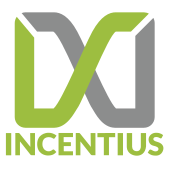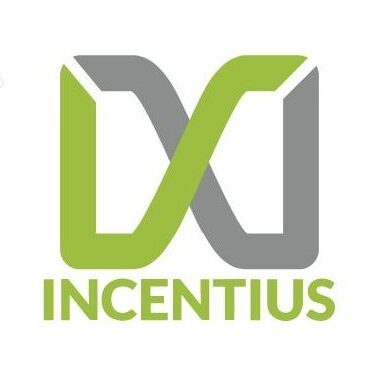10 Best Data Warehouse Tools to use in 2023 Marketing November 23, 2022
What is a data warehouse?
A data warehouse is notably designed for data analytics, which involves reading huge amounts of data to figure out relationships and trends across the data. A data warehouse typically stores processed data in databases, which are used to collect and organize data. These databases store information in a structure of predefined tables and columns. Business users rely on data warehouses to gain insights into their company’s data, which further aids them in future business decisions.
Data warehouses require more storage, computing, networking, and memory because of the volume and variety of data produced by businesses. The amount of enterprise data organizations generate is increasing, as they expand their customer base and embrace new technologies.
Why is there a demand for data warehouse tools?
Data warehouse tools use Artificial intelligence (AI) and Machine Learning (ML) to enhance data warehouse performance. Some of the key factors businesses consider for using data warehouse tools are:
- To gain strategic and operational knowledge from the data
- Improve decision-making and support systems
- Explore and assess the effectiveness of marketing efforts
- Keep track of the performance of their employees
- Observe consumer trends and forecast the next business cycle
Investment in data warehouse tools is skyrocketing. The data warehouse market is anticipated to grow to $34 billion by 2025 from its current size of approximately $21 billion. Microsoft Azure’s SQL Data Warehouse and AWS Redshift are the two fastest-growing market players.
10 data warehouse tools to use in 2023
- Google Data Warehouse Tools
Given its leading position as a search engine, Google is well-known for its data management abilities. Google’s Data Warehouse Tools demonstrate the company’s advanced data management and analytics capabilities. One of the best data warehouse tools Google offers is Google BigQuery. It is a cost-effective data warehouse tool that includes machine learning capabilities. The platform uses high-speed SQL(Structured Query language), which helps to store and query large data sets.
- Big Eval
Big Eval leverages the value of the enterprise by continuously validating and monitoring the information quality of the data. It also automates testing tasks during the development process. The tool has a unique automation approach and a simple user interface that ensures same-day benefits.
- Oracle Autonomous Data Warehouse
Oracle Autonomous data warehouse is a top legacy software in the database market. The Oracle database is ideal for enterprise companies looking to improve their business insights through machine learning. The tool can automate functions like setting, safeguarding, regulating, scaling, and backing up data within the data warehouse. Oracle Database provides data warehousing and analytics to assist businesses in scrutinizing their data and gaining deeper insights.
- Snowflake
Snowflake is a unique cloud-based data warehouse tool in the business world. The cutting-edge data warehouse is built with a patented new architecture to handle all aspects of data and analytics. It combines performance, simplicity, concurrency, and affordability on a higher scale as compared to other data warehouse tools. Snowflake allows for both transformation during and transformation after loading (ELT) processes. Snowflake integrates with several data integration tools, including Informatica, Talend, Fivetran, and Matillion.
- IBM Data Warehouse Tools
IBM is used by large business clients. The company is well-known for its vertical data models, in-database, and real-time analytics, which are especially important in data warehousing. One of the most established IBM Data warehouse tools in the market is the IBM Db2 Warehouse.
IBM Db2 Warehouse tool allows for self-scaling of data storage and processing. It includes a relational database that enables you to quickly store, analyze, and retrieve data. It takes data from a source system and transforms and feeds it into the target system. And to understand how data passes through transformation and integration, you can use Data Lineage, pre-build connections, and stages in the tools
- Teradata Vantage
Teradata Vantage provides all-in-one data warehousing solutions. It is a cloud analytics platform combining analytics, data lakes, data warehouses, and new data sources. Teradata Vantage also supports SQL for interacting with data stored in tables.
- Amazon Redshift
Amazon Redshift is a fully managed, petabyte-scale (measurement unit of data) cloud data warehouse solution. It is a simple and cost-effective data warehouse tool. It uses standard SQL to analyze almost any type of data. It provides huge storage capacity and offers compatible backups for your data. It is widely used, and because of its easy scalability, it can handle large enterprise databases.
- SAP Cloud Data Warehouse
SAP Cloud Data Warehouse is used for open-source and client-server platforms. It is built in a modular format for efficient use and space utilization. It incorporates ML and AI functionality in its data warehouse solution. And also offers a pricing calculator based on its level of usage. SAP is a portable application that can be used on any device.
- PostgreSQL
PostgreSQL is a powerful, open-source object-relational database system that has been actively developed for over 30 years and has a strong reputation for dependability, feature robustness, and high-end performance. The tool can function as a primary database and is useful for large and small corporations, as well as medium-sized businesses.
- Microsoft Azure Data Warehouse Tools
Microsoft Azure is a cloud-computing platform that allows developers to create, test, and deploy applications. Azure is publicly available and offers Infrastructure as a Service (IaaS), Platform as a Service (PaaS), and Software as a Service (SaaS). One of the best data warehouse tools that Microsoft offers is the Azure SQL database. It is based on the PaaS infrastructure, which handles database maintenance tasks like updating, patching, monitoring, and backing.
In a nutshell:
Utilizing pooled data and data warehouse tools can effectively streamline your business organization. Data warehouse solutions (tools) can translate gathered data from diverse sources into a more straightforward arrangement.


